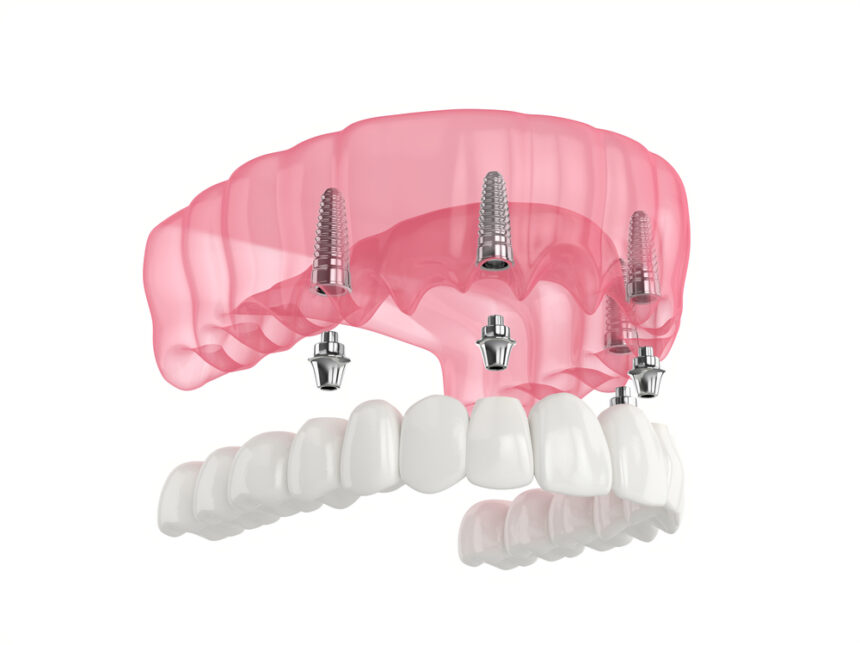Snap-in dentures, also known as implant-supported dentures, have gained popularity as a more secure and stable alternative to traditional dentures. Designed to “snap” onto dental implants, they provide improved function and comfort. However, despite their advantages, snap-in dentures come with their own set of challenges and limitations that patients should consider before making a decision.
At DentalX Downsview Dental Clinic, one of the best Dental Clinics in North York, patients receive professional advice tailored to their oral health needs. Conveniently located at 170 Rimrock Rd., Unit D-2, North York, ON, the clinic is committed to delivering exceptional patient care. Whether you’re exploring dentures, implants, or general Dental Care in North York, understanding the pros and cons can help you make informed choices for long-term results.
Let’s explore the most common problems associated with snap-in dentures—and how to deal with them effectively.
What Are Snap-In Dentures?
Snap-in dentures are removable dentures that are anchored in place by dental implants. These implants are surgically placed in the jawbone, and the dentures are designed with attachments that connect to these implants. This structure makes them more secure than traditional dentures, which rest on the gums.
Snap-in dentures can be removed for cleaning but offer a more stable fit throughout the day, making them a popular choice for those who want the convenience of removability with the stability of fixed dental options.
Common Problems with Snap-In Dentures
While snap-in dentures are generally considered superior to traditional dentures in terms of functionality and comfort, they are not without issues.
1. Implant Failure
One of the major risks associated with snap-in dentures is implant failure. Dental implants need to fuse with the jawbone in a process called osseointegration. If this fails, the implant may not be stable enough to support the denture. Causes of implant failure can include poor bone quality, infection, or improper placement.
This is why choosing an experienced Dentist in North York is critical for success.
2. Wear and Tear of Attachments
The attachments (such as O-rings or locator clips) that allow the denture to snap onto the implant can wear out over time. This results in a loose fit, which can reduce the effectiveness of the denture and cause discomfort or clicking sounds while speaking or chewing.
Regular checkups at a qualified Dental Clinic in North York can help you maintain the integrity of these parts through timely replacements.
3. Difficulty in Cleaning
Although snap-in dentures are removable and easier to clean than fixed options, some users find cleaning around the implants challenging. Food particles and bacteria can accumulate around the implant posts, increasing the risk of gum disease if proper hygiene is not maintained.
It’s crucial to follow your dentist’s guidance on oral hygiene practices and to consider professional Dental Care Services in North York for optimal maintenance.
4. Adjustment Period and Discomfort
It’s common to experience an adjustment period when transitioning to snap-in dentures. Initial soreness or difficulty speaking and chewing may occur. Over time, most patients adapt well, but in some cases, prolonged discomfort or sore spots can develop if the fit isn’t perfect.
Frequent follow-ups are necessary to adjust the fit and ensure your gums and implants remain healthy.
5. Higher Initial Commitment
Compared to traditional dentures, snap-in dentures require surgery, healing time, and a financial commitment. While they provide long-term benefits, the upfront time and effort can be discouraging for some patients. That’s why consulting with trusted professionals like those at DentalX Downsview Dental Clinic is essential to weigh all your options.
How to Manage and Avoid Common Issues
While problems can occur, most are preventable with the right approach. Here are a few tips:
- Maintain Oral Hygiene: Clean both the denture and your mouth thoroughly every day.
- Routine Checkups: Visit your dentist regularly for evaluations and part replacements.
- Avoid Hard Foods: Limit chewing on hard or sticky foods that could damage the attachments.
- Follow Post-Surgical Instructions: If you’re undergoing implant placement, follow all post-op care instructions for successful healing.
Addressing issues early can prevent more serious complications and ensure the longevity of your dentures and implants.
FAQs About Snap-In Dentures
1. How long do snap-in dentures last?
The denture itself may last 5–10 years, but the attachments may need replacement every 6–12 months. The dental implants, if maintained properly, can last a lifetime.
2. Are snap-in dentures better than traditional dentures?
Yes, in many ways. They offer better stability, comfort, and chewing efficiency. However, they come with a higher initial cost and require surgical procedures.
3. Can I sleep with snap-in dentures?
It is generally recommended to remove snap-in dentures at night to allow your gums to rest and to maintain oral hygiene.
4. Do snap-in dentures require special cleaning?
Yes. While they are removable, the area around the implants requires careful brushing and flossing to prevent plaque buildup and infection.
5. Is the procedure painful?
Implant placement involves surgery, but it is typically performed under local anesthesia. Any discomfort afterward can usually be managed with medication and aftercare instructions.
Conclusion
Snap-in dentures are a powerful solution for those seeking improved function and confidence in their dental prosthetics. However, like any medical procedure, they come with potential challenges. By understanding these issues, patients can take proactive steps to prevent complications and enjoy the long-term benefits of their investment. Choosing a reputable provider like DentalX Downsview Dental Clinic in North York ensures that you receive quality care, precise treatment planning, and ongoing support throughout your dental journey. Whether you’re considering snap-in dentures or exploring other dental solutions, the right guidance makes all the difference.


